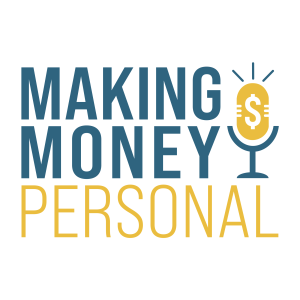
What does it mean when the Fed raises rates? Well, if you have a savings account, loans or a mortgage, a rate hike will impact you. This tip covers a few of the things you can do if the talk of raising rates seems a bit scary.
- Learn more about the Federal Funds Rate
- Learn more about the Prime Rate
Like what you heard? Go ahead and share on your social media! Visit trianglecu.org to learn more about how we can serve you and don't forget to follow us on Facebook and Twitter!
Transcript:
Welcome to Money Tip Tuesday from the Making Money Personal.
There has been a lot of buzz in the media about the Federal Reserve Board raising rates. If you don’t follow finance or banking closely, you might be wondering what it means and how it could impact your life?
When people talk about the Fed rate they are referring to the Federal Funds Rate – which is what commercial banks use when they lend money to each other.
It is set by the Federal Reserve Board and can be adjusted up or down.
One reason the Fed chooses to raise rates is to slow inflation.
If you’re noticing an increase in the prices of goods and services around you, that’s likely due to inflation. To help keep inflation in check, the Fed raises the Federal Funds Rate.
At the time of this recording, the Federal Funds rate was recently adjusted from .25% to .5%.
The Federal Reserve has also announced it may raise rates 6 more times this year. That means that each time they review the rate, it's likely to adjust.
Now, when you borrow money from your credit union or bank, you’re not getting the Federal Funds rate. Banks and lenders use a rate based off the Federal Funds Rate called Prime Rate which is typically 3% higher than the Fed rate.
If the Fed rate is .5% then Prime Rate will be 3.5%. If the Fed rate goes to .75%, then Prime will be 3.75% and so on.
The Prime rate is what banks and lenders use when they determine what interest rate they’ll charge consumers like you and me when we borrow money.
If the fund rate goes up, then all the others are likely to follow.
If you have loans, credit cards and savings accounts, a rate hike will have an impact on you in both bad and good ways.
Here are a few things you can do to prepare for when rates go up:
First, you can take advantage of any existing low rates and refinance. If you have an auto loan, a mortgage or a personal loan and you haven’t done it already, refinancing can get you a lower rate on your loan now, especially if you know they will be going up.
Another thing you can do is pay down your debt as best as you can. Credit Cards and other loan rates will likely adjust to coincide with the rise in the Fed rate. If those rates go up on you, your monthly payment will also go up.
And finally, keep an eye on deposit rates, which may start to rise. When the Fed rate is low, deposit accounts like CDs, Money Markets and savings accounts don’t give you much of a dividend. But when it goes up, you may start to see deposit accounts offering you a higher percentage on your money. Deposit accounts could become a good place to park extra cash, so keep an eye on the interest rates for CDs, Money Markets and other savings accounts
When the rates rise, there’s much to consider. It’s best to be aware of what’s going on in the financial world so you can position yourself to make the most of how these changes will affect you.
If there are any other tips or topics you’d like us to cover, let us know at tcupodcast@trianglecu.org and don't forget to like and follow our Making Money Personal FB page and look for our sponsor, Triangle Credit Union on Instagram and LinkedIn to share your thoughts.
Thanks for listening to today’s Money Tip Tuesday and be sure to check out our other tips and episodes on the Making Money Personal podcast.
Have a great day!
More Episodes
 2022-09-06
2022-09-06
 111
111
 2022-08-30
2022-08-30
 116
116
 2022-08-23
2022-08-23
 154
154
 2022-08-16
2022-08-16
 120
120
 2022-08-02
2022-08-02
 153
153
 2022-07-19
2022-07-19
 110
110
 2022-06-21
2022-06-21
 95
95
 2022-06-07
2022-06-07
 93
93
 2022-05-31
2022-05-31
 98
98
Create your
podcast in
minutes
- Full-featured podcast site
- Unlimited storage and bandwidth
- Comprehensive podcast stats
- Distribute to Apple Podcasts, Spotify, and more
- Make money with your podcast
It is Free
- Privacy Policy
- Cookie Policy
- Terms of Use
- Consent Preferences
- Copyright © 2015-2024 Podbean.com






